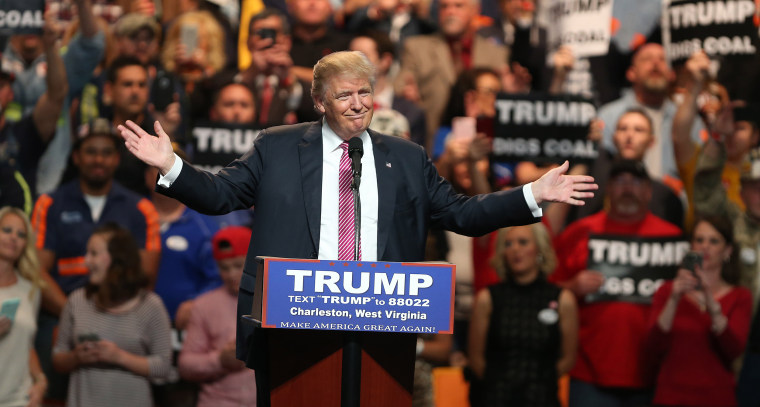Before there was #NeverTrump, there were the Mugwumps.
Donald Trump’s position as the presumptive GOP nominee has some prominent Republicans bolting to support his likely Democratic opponent, Hillary Clinton—something that sounds crazy in contemporary circles, but was an effective strategy 132 years ago.
That year, Republicans nominated former House Speaker and Secretary of State James G. Blaine as their nominee for the 1884 presidential election. Blaine, in his third run for the nomination, edged out sitting President Chester A. Arthur at the Republican National Convention in Chicago, a move that was unpopular with the reform wing of the GOP.
Following two presidents who championed civil service reform, some Republicans were unwilling to support a candidate who had several personal corruption allegations. Blaine allegedly pocketed cash from a railroad deal he shepherded through Congress as Speaker, and testified in front of Congress over allegations he dictated U.S. foreign policy to enrich himself in the guano market.
Blaine lost his temper and yelled at a Democratic congressman during his testimony during the highly partisan hearings. The hearings took months, and whether or not the allegations were true, the media circus surrounding the investigation hurt his reputation.
A handbill circulated to Republicans and Independents in Chicago a few months after the convention read, “His record is notorious. Its ‘magnetic brilliancy’ cannot hide its utter lack of principle, unselfish purpose or public good accomplished. … Blaine’s nomination has compromised the Republican party, and his election would dishonor the nation.”
So what did these “Never Blaine” Republicans do on Election Day? They supported his Democratic opponent, New York Governor Grover Cleveland.
An editor at the now-defunct New York Sun gave the bolters the nickname, “Mugwumps,” an Algonquin word re-purposed to jeer the leaving Republicans as “self-important.” However, like the contemporary anti-Trump Republicans, the Mugwumps felt they were actually saving their underlying movement.
Mugwump leader George Fred Williams addressed Massachusetts voters, “By the nomination of James G. Blaine, the Republican party has thrown down the gauntlet of corrupt and partisan government. The Democratic party answers the challenge. … We do not ally ourselves with the Democratic party, still less sanction or approve its past, but its present candidate has proved his fidelity to the principles we avow, and, in the coming election, he commands and will receive our support.”
Compare these headlines to modern conservative media: Minister and activist Henry Ward Beecher wrote a piece under the banner, “Republicans, Save the Party,” and former Missouri Senator Carl Schurz delivered a speech entitled, “Can Honest Americans Vote for James G. Blaine?”
The anti-Blaine groups even took on a little bit of Trump’s campaign flavor. According to the University of Virginia’s Miller Center for Politics, one the Democrats effective campaign slogans attacking the Republican nominee was, “Blaine, Blaine, James G. Blaine, The continental liar from the State of Maine.”
Grover Cleveland narrowly beat Blaine 219-182 in the Electoral College, giving Democrats their first presidential win since before the Civil War. Just over a thousand votes separated the two in New York, a Mugwump stronghold. If Blaine had taken New York he would have garnered New York’s 36 electoral votes and the presidency.
The silver-lining for the Republicans that stayed with Blaine and the party—four years later the Republicans took back the White House as Benjamin Harrison defeated Grover Cleveland.
